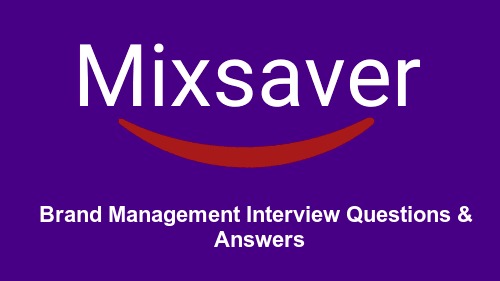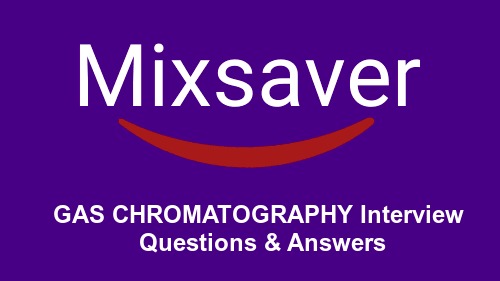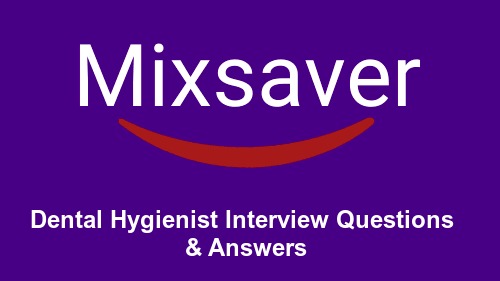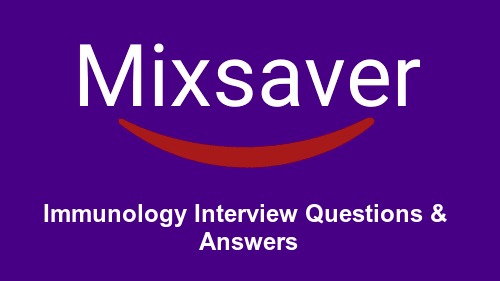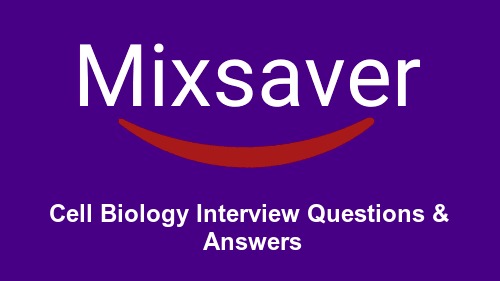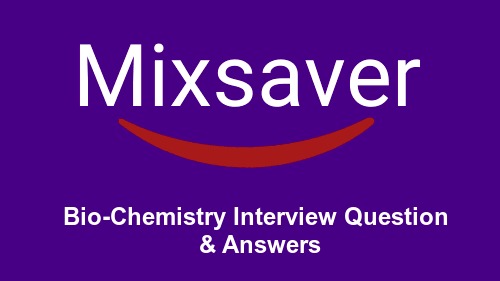1. What is Brand?
A brand is a name, term, sign, symbol or a combination of them intended to identify the goods and services of one seller or group of sellers and to differentiate them from those of competition. For example, Coke, Nestle and Microsoft are well-renowned brands. In technical speaking whenever a marketer creates a name logo symbol he or she has created a brand.
2. Tell us something about brand positioning?
Positioning is the act of designing the company’s offering and image in the target consumers' minds.
3. What is the difference between a brand and a product?
While brand is a name, term, symbol, design or logo, product is of an identifiable generic nature object.
4. What are the major areas, concerning managing brands? What is the negative impact of Brand Management in the company?
The major areas of concern for a company
1. To brand or not
2. Cost and benefit of developing brand equity
3. Brand strategy
4. Brand repositioning
Negative impact of brand management portrays a Turf’ mentality among brand managers leading to cannibalization of a few brands and Sub optimal utilization of resources.
5. What is an integrated multiple channel brand strategy? Explain with an example?
A brand has to be communicated to specific target consumers. Integrated multiple channel brand strategy uses a number of channels utility for this purpose. Care should be taken to have uniformity or consistency in messages along with subtle fine—tuning depending on the specific segment targeted.
6. Differentiate between a private brand and a national brand? Is Coca Cola in US a private or a national brand?
Answer: Private brand is a brand created by a reseller of a product or a service. The brand owned by a manufacturer for example - Lux of HLL.
National brand is a brand having evolutionary lives. Coke started as a private brand. predominant in the US. But today it is a global brand. SO much so that the other name for globalization is coca colonization, according to some critics of the phenomenon.
7. What do you understand by Brand Equity? How is Brand Equity different from Brand name?
The value of Brand Equity is based on the extent to which it has high brand loyalty, name awareness, perceived quality. Strong brand associations and other assets such as patent, trademark and channel relationships. As the name suggests it is more than just a brand name. It is the total of all endeavors that go in creating the image of the brand among consumers. There are various methods of evaluating brand equity. Brand name is only the vocalized part of the brand.
8. Why has Dell become so powerful as a brand in such a short period in spite of Goliaths like IBM, Compaq, HP in the Market place?
Dell may be credited with making a high-tech product like the PC into an appliance. The main reasons can be attributed to
1. On the consumer front, its interface empowering users and directing to end user strategy.
2. Its excellent supply chain management strength cutting its work-in-process to negligible compared to competition.
9. What is the basic idea behind Co branding’? Please give suitable example from India and abroad?
When two brands come together to create greater value to the customer then it is called Co-branding. Coke and McDonald’s have done that globally, while Dettol and ICICI Prudential are doing in India.
10. Differentiate between brand extension and line extension? Can these both happen at once? Give an example.
Brand Extension: Where a company uses its existing brand name to launch new products in other categories.
Line Extension: It is a type of brand extension. Line extension trap should be avoided to extend brand in products hurting the consumer’s regard for a company.
Example of both the above in a single category - Will Sports is an example of a brand extension to launch a new line of products.
11. It is not always profitable to go in for brand building? Do you support this View? How would you brand Indian software development skills?
Cost of brand building Vs Benefit of branding. The point to note is that branding ct is an immediate process whereas the benefits are always long-term goals. If viewed from a long term image building prospective. It is always profitable to go in for brand building. We may lose out to cheaper labor nations unless we do something to brand our software development skills. Branding a nation is not a new and impossible proposition.
12. What is brand positioning?
Brand positioning is a process in which marketers would like to occupy the rational space in the minds of the target customers against competition.
The following are the basis for positioning a brand:
• Target audience
• Frame of reference
• Point of differentiation
• Reasons.
13. What are the components of Brand Positioning?
The components of brand positioning are :
• Target audience
• Category/Industry/Market
• Unique selling proposition .
14. What do you feel is the potential for Brand Management?
The potential for brand management will help the company to promote its image in the society, differentiate its offerings from competitors, devise marketing communication activities, protect its product features legally etc.
15. What are the Tools to communicate with your target audience?
The following are the various tools used to communicate with the target audience:
• Company newsletters
• Journal article
• Conference
• Trade shows
• Exhibitions
• Product brochure
• Word of mouth
• Direct mail
• Internet
• TV
• Local/regional/national newspaper
• Magazine
• Radio etc.
16. What role do events play in Marcom?
The events play the following role in Marcom:
• The communication messages are circulated to the mass people irrespective of segments i.e. wide reach
• Lower costs
• Increases corporate and brand image
• In-depth insights about target audience
• Global exposure for the new products/services
17. How would you use online media for your Marcom activities?
Using online media for Marcom activities is to ensure the maximum reach of the target audience at lower costs and results in increased consumer engagement. And also, it is easy to monitor and measure the results of online media usage. Internet is considered to be the one of the most effective tool in today’s competitive business world.
18. How would you get your PR across to people?
One of the main responsibilities of a Marcom person is to ensure the organization and product/brand image to be good in front of the eyes of the consumers. On a timely basis, PR should be used to create awareness to the public in relation to the events happening in the company such as new product launch, product relaunch, sponsoring consumer events, participation in trade shows and exhibitions etc.
19. How to judge the effectiveness of your Marcom activities
• Reach
• Frequency
• Increase in sales
• Improving the company image
• Brand and advertising awareness
• Cost per thousand
• Change in market share etc.
20. Assume you are a brand, describe your strengths and weaknesses?
My strengths are good communication, analytical and client servicing skills and flexibility to any kind of environment.
My weakness is diversified concentration.
I position as a brand by means of catering to the mass market (Flexibility) with assortment of product categories (diversified concentration) across geographies (flexibility) with high quality product standards to the consumers.
